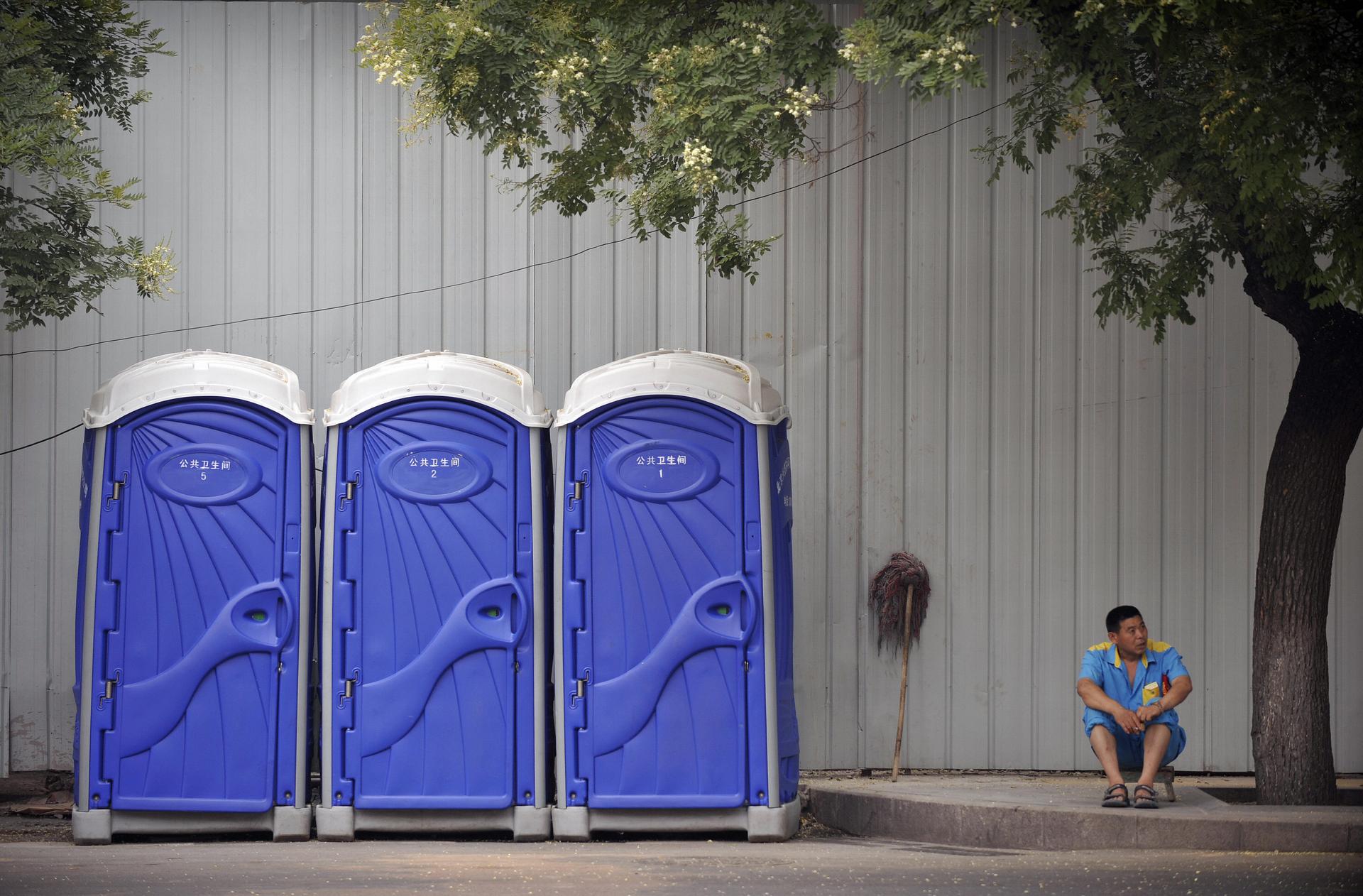Reinventing the toilet: Gates Foundation shows off our excrement’s future
An attendent sits next to portable toilets in Beijing on July 23, 2008. The new cleanliness rules are similar to the ones put in place during the Olympic games.
Imagine this: a toilet that uses solar power while generating hydrogen and electricity.
Far-fetched as it may seem, the toilet may be more real now that the Bill and Melinda Gates Foundation has awarded it $100,000 as the winner of their Reinvent the Toilet project.
The project, announced about a year ago, urged people to invent a toilet for the 2.5 billion people around the world who don't have access to modern sanitation.
According to NBC News, the winning toilet was designed by Caltech, gaining it funding for further research. The UK's Loughborough University's toilet, which produces bio-charcoal, minerals and clean water, won second place and $60,000, and the University of Toronto received $40,000 for their third-place toilet that sanitizes waste and recovers usable resources.
According to the United Nations, at least 1.5 million children die each year from diarrheal disease, which could easily be prevented with proper sanitation, safe drinking water, and better hygiene.
Last year, the Bill and Melinda Gates Foundation financially encouraged researchers at eight universities to devise a new type of stand alone toilet that can function in areas without extra water and without any electricity. The toilets had to find innovative ways that human waste could be used to create energy and water; salt and nutrients can also be recovered from waste sludge. Here's the kicker — the researchers had to invent toilets that cost less than 5 cents a day to use.
Watch a video explaining the Reinvent the Toilet challenge:
Yesterday, scientists rolled out their work in an exposition of cheap, efficient toilets. According to NBC News, researchers, investors, and advocates from 29 countries are currently in Seattle to see and comment on designs. The Associated Press reported that prototypes of these toilets could roll out within the next three years.
More from GlobalPost: What you need to know about Bill Gates' new toilet.
The Gates Foundation has also pledged $370 million in foundation dollars to the project, the AP reported.
Bill Gates isn't counting on the toilets only being used in the developing world, though.
"If we do it right, there's every possibility that some of these designs would also be solutions for rich and middle-income countries," Gates said.
He's right. The modern toilet has been evolving since it was invented in 1596. Here's a quick history of the W.C.
We want to hear your feedback so we can keep improving our website, theworld.org. Please fill out this quick survey and let us know your thoughts (your answers will be anonymous). Thanks for your time!
